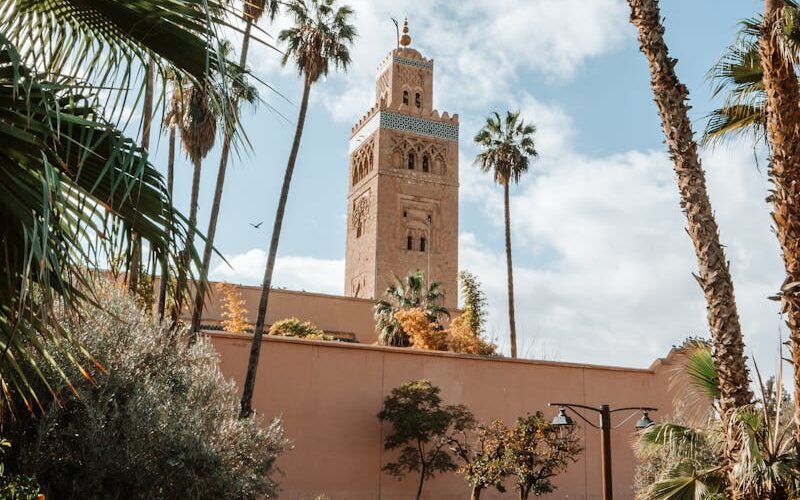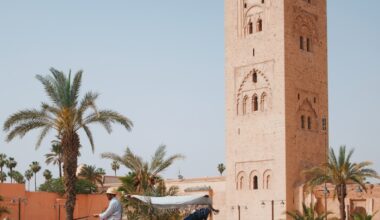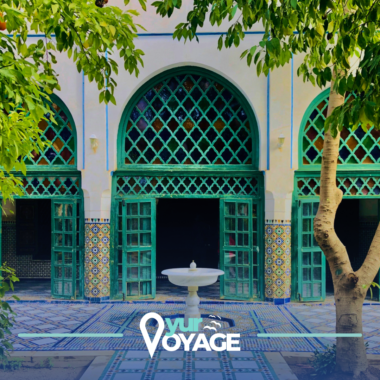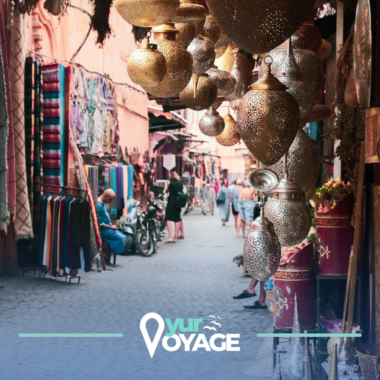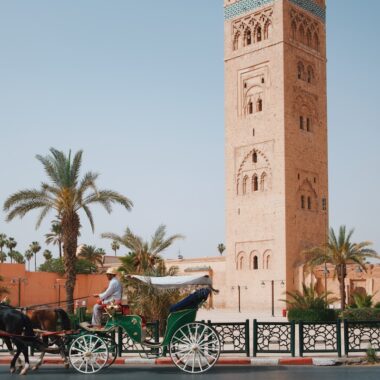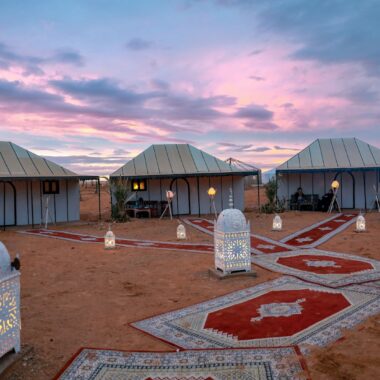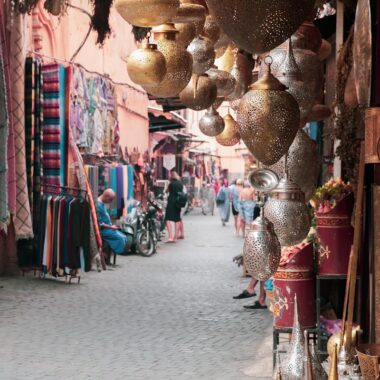Table of Contents
Welcome to the vibrant, chaotic, and utterly enchanting world of the Moroccan medina! These ancient walled cities—especially the colossal labyrinths of Marrakech and Fez—are the heart and soul of Moroccan culture and an absolute must-see.
While Morocco is generally a safe and welcoming destination, the bustling energy of the medinas can feel intense. Most travellers worry about simple pickpocketing, but our goal is to prepare you for the real challenges: sophisticated scams and a few overlooked safety concerns.
This guide is designed to empower you with the knowledge to walk confidently, avoid the most common traps, and truly enjoy your journey into the soul of Morocco.
Real Safety Concerns in Moroccan Medinas: Moving Past Pickpocketing
Petty theft, like pickpocketing, happens in any major global city, and Moroccan medinas are no exception. But when you look beyond petty crime, what are the genuine safety concerns you should be aware of?
Hustle Culture and Harassment: The Emotional Toll
The most common “safety” concern in the medina isn’t physical harm, but the persistent hustle, which can be emotionally draining.
- The Problem: Unsolicited “guides,” aggressive vendors, and persistent beggars can make simply walking down an alley feel like a constant battle. This is particularly true for solo female travellers, who may experience catcalling or unwanted attention.
- The Travel Tip: Confidence is your best defense. Walk with purpose, as if you know exactly where you are going (even if you don’t!). A polite but firm “La shukran” (No, thank you) and keeping your eyes forward is usually enough. Avoid prolonged eye contact, which can be misinterpreted as encouragement.
Navigational Hazards and Nighttime Safety
The medinas are a beautiful maze, and getting lost is part of the fun, but a few areas require extra caution.
- Poor Lighting and Isolation: While the main thoroughfares are busy until late, the narrower, residential alleys (derbs) often become completely deserted and poorly lit after dinner time (around 9 PM).
- The Travel Tip: Cap your wandering late at night. If you’re heading back to your Riad, stick to the busiest, best-lit routes, or consider hiring a trusted, official taxi even for a short ride if you feel uncomfortable. When lost during the day, ask a shopkeeper for directions, not an idling young man on the street. Shopkeepers are typically trustworthy as they can’t leave their post.
Isolated Incidents of Armed Theft (Knives)
While extremely rare, isolated incidents of street robbery involving knives have occurred, particularly on quiet, dark streets or isolated tourist spots like deserted beaches or lookout points.
- The Travel Tip: Do not resist if you are ever confronted. Your money and belongings are replaceable. Avoid flashing expensive items like high-end cameras or jewellery. Use a secure, slash-resistant anti-theft bag and keep a small amount of cash easily accessible, separate from your main stash, so you don’t have to flash a large roll of money for small purchases.
How to Avoid Scams in Moroccan Medinas: The Top Tourist Traps
The vast majority of Moroccans are honest, but the medinas have perfected a few tourist scams. Being aware is your best defense against these confidence tricks. Learning how to avoid scams in Moroccan Medinas will save you money and frustration.
The “Faux Guide” Scam
This is the most pervasive type of scam across all major Moroccan Medinas and is often the first thing travellers encounter.
- The Scam: An overly friendly person approaches you, claiming to be a student practising English or simply offering “free” directions. They lead you on a winding path, often making the trip much longer, and then demand a hefty fee or try to force you to visit a specific, overpriced shop where they earn a commission.
- The Solution: Politely but firmly decline all unsolicited help. If you truly need directions, go into a ceramics shop, a small boutique, or a café and ask the person working there. Official, licensed tour guides wear a distinct badge—always ask to see it.
The “Closed” Attraction Trick
This classic scam is designed to divert you to a place of the scammer’s choosing.
- The Scam: As you walk toward a major attraction (like the Bahia Palace or the Tanneries), someone will jump in front of you and say, “It’s closed! It’s Friday/Prayer time/Lunch break. I can show you a better, special place.”
- The Solution: Ignore them and keep walking right up to the entrance. Major tourist sites have posted hours and are rarely unexpectedly closed. If they persist, a confident “I know, I’m just going to look at the gate/building” often works.
Taxi Troubles: Price Negotiation
Getting a taxi to or from the Medina can be a negotiation.
- The Scam: Taxi drivers, particularly “petit taxis” (city cabs), will claim the meter is “broken” or “not working at night” to force you to agree on a price, which is almost always inflated.
- The Solution: Always insist on the meter (“compteur“). If they refuse, get out of the taxi and find another one. Alternatively, agree on a price before you get in, and be ready to pay only that agreed-upon amount. Ask your Riad host for typical fares to major landmarks to get a baseline price.
The Henna and Monkey Scams in Jemaa el-Fna
These scams target visitors in Marrakech’s main square and involve animals or forced services.
- The Scam: In Jemaa el-Fna, women may grab your hand and begin drawing henna without asking, then demand payment. Similarly, snake charmers or monkey handlers might thrust an animal onto you or around your neck for a photo, then aggressively demand a massive fee.
- The Solution: In these crowded areas, keep your hands in your pockets or near your body. A clear, emphatic “No!” and walking away swiftly is necessary. Never pose for a photo with an animal or let them touch you—you are encouraging the practice and will be charged.
Essential Tips for a Safe and Enjoyable Medina Experience
- Secure Your Valuables: Leave your passport and most of your cash locked in your Riad’s safe. Carry only photocopies of your ID and enough cash for the day. Use a secure bag and keep it in front of you.
- Master the Map: Download an offline map app (like Maps.me) that works without data. Beyond petty crime, the biggest daily hassle is getting truly lost, which makes you a target. Use the map for reference, but don’t hold it out like a beacon—look at it discreetly when ducking into a side alcove or shop.
- Dress with Respect: Morocco is a moderate Muslim country. Dressing modestly (covering shoulders and knees) will make you blend in more, attract less unwanted attention, and show cultural respect.
- Bargaining is Expected: When shopping in the souks, remember that haggling is part of the culture. Start low, stay friendly, and don’t feel pressured to buy anything. It’s okay to walk away!
By focusing your awareness beyond petty crime and understanding how to avoid scams in Moroccan medinas, you can shift your energy from defense to discovery. Enjoy the sensory overload, the history, and the incredible hospitality that awaits you in the heart of Morocco!
